Martin Philip's life has been a rich journey; from working in finance to pursuing his passion for music. Today he is baking ambassador for King Arthur Bakery. I first saw Martin via bread baking videos on the company website. Then I found his book Breaking Bread: A Baker's Journey Home In 75 Recipes. Recently he agreed to come share his thoughts on Stir the Pots. Here's our interview.
Martin, what transitioned you from the arts through to finance and finally into bread baking?
I think this shift was actually pretty natural. My background is in classical music, a career I found as a result of loving craft, creativity, and work. Music was just the tool to get closer to these things. Bread and baking have been my tool most recently, maybe there’s something else out there, too. What’s important (or required) is that it satisfy the elements of craft, creativity, and work. Beyond that…the options are endless.
Banjo is an American instrument with deep roots across the African diaspora. How did you pick it up?
My mother somehow intuited that I needed a banjo for my 16th birthday. Music had always been important in my house from lessons to just lots of listening–the ringing sound and connection was immediate. I played for a few years but then set it aside until I was in my early 30s. Now it’s a significant part of how I enjoy time by myself and with my family.
How do bakers learn to bake with so many fads, not to mention dealing with today's social media bits, such as Instagram crumb shots?
The focus on visuals in baking has obviously changed significantly with the advent of the internet and social media. Looking, without tasting, crunching, or munching misses most of what’s important to me. But, I guess I feel like if the options are either disengage or engage (from social media, for example), I’m going to chase the version that at least has the opportunity for connection and try to make some change. In terms of learning to bake, I think it’s a great time. Never has information and content been so readily available. From Youtube to online courses and bakers who are accessible for questions, much of what we want to learn is at our fingertips. Hopefully with time and many bakes under our belts bakers can come to define what it is they like or want to say/be with what they make. That seems like something positive to me.
Are bakers able to bake the same as the other if given one recipe?
That’s a tough one. Experience is a great teacher and, some bakers are hard-headed. A recipe (like a road map) is no guarantee that you’ll end up at the specified location. But maybe that’s ok. How boring would life be if we were all the same?
How has the pandemic affected baking?
The acute/lockdown phase of the pandemic brought many people to the comfort and ritual of breadmaking. I hope some vestige, some morsel of that connection or appreciation, remains. Gratitude for our health, scientists, the spirit of community which brings awareness to those who are underserved or in need–I hope these things hang around.
How did Jeffrey Hamelman shape you as a baker?
I grew immensely during my time with Jeffrey. Above all, I think we were well aligned in the ways which our curiosity and hunger for knowledge remain insatiable. Jeffrey embodies what a craftsperson looks like–I aspire to be as skilled and connected.
How difficult is it to write about bread?
I don’t think writing about bread itself is challenging. If I’ve struggled it’s been to properly find my audience. Who will read what I’m writing, what is their assumed level of experience? How can I say what I want without making things too complicated or unapproachable? I want to be understood but also provide a path to a place where someone has the guidance, skill, and confidence to bake their own best bread–to tell a story with what they make (and share).
What bread did you grow up eating in Arkansas?
Great question. I grew up with my mother’s loaves. The same recipe, made every week. Half whole wheat, half all-purpose, she (or my father) made about 13 loaves each weekend. I put the recipe in my book. We call it mama’s bread. Delicious.
What is the quintessential “American” loaf?
That’s a tough one. From tortillas to naan to sourdough and steamed buns, we have so many choices (and they keep changing).
Does your son want to be a baker?
He’s certainly interested in food…and climbing and playing music and running and cycling – he can choose what he wants, I think. As long as he’s engaged and nice to be around I feel like we’ve done our job as parents.
In milling your own grain, do you sift generally?
I never sift my home-milled flour. In my experience the smaller mills don’t do a good enough job of flaking the bran layer, producing a siftable product. There are certainly pieces that are larger but if you examine them, I usually find them to be attached to the endosperm. Sifting them out only serves to reduce the total quantity of flour. Maybe what you get is slightly higher in ash than what remains (meaning there is more bran) but I don’t think it’s worth the effort. I’d rather just adjust the ratio of flours in what I’m making. So, if you could mill and sift well enough to produce a flour like a T85, that’s great. At home though, I’d be more likely to maybe use 35% freshly-milled whole wheat and use AP for Bread flour for the remainder.
Is the Coupe de Monde baking, or Olympics?
Good question. I think the Coupe is it’s own thing. Olympians practice for an event which grows out of a lifetime spent riding a track bike, skiing the Super G, or doing a floor routine. The events are largely the same. With the Coupe, production bakers prepare singly for the event, training skills specifically for the event. That’s not to discount the ways in which those skills can be fully applied to production baking, it’s just different than an 8 hour trial with very complicated breads (or pastries).
Does baking bread make us return to a craft we forgot?
In general terms I think that we spend less time with craft than we may have 100 years ago. I believe in the transformative power of handwork so my opinion is that is a loss. I hope to inspire people back to that connection and, as importantly, the ways in which baking for others fosters community, good will, compassion, empathy, and health.
How long does it take to become a proficient baker?
That’s tough. With good tools, methods and instruction I can get a pizza baker up to speed in a couple weeks (at the oven, shaping could take longer). But if we’re talking about someone mixing, shaping, scoring, and baking baguettes or running nice viennoiserie, the wait can be years. So, without hurry, move, and keep moving, keep practicing; all of us that started before you are also trying to get there, still. Always.
What are the differences in ratios and baker’s percentages?
To me, the percentages are merely a numerical representation of ratios. And, with small amounts like yeast or salt, rather than saying 1/1000th, it’s easier to write something like .1% (or whatever it would be). So, baker’s math to the rescue, always. I use it every day.
That’s hard to say. I agree with the idea that a diet rich in whole grains leads to better health outcomes. I think there is reliable evidence to support that claim. And, I think that there is some degree of zealotry regarding whole grains in baking. I’m interested in community and making bread which appeals broadly and serves broadly to improve the quality of what people eat. I’d like that revolution to reach across levels of access and experience–a $20 loaf of 100% whole wheat as a single variety bread, while likely delicious and made with great intention, doesn’t serve my goals for feeding people.
Are you going to write another book?
Yes. I keep pitching things which are essay-based with recipes woven in. I feel like I’m drawn to something less conventional than the standard cookbook format. I hope that eventually another publisher will take a chance on me. I know that I have things to say–conversations to start between makers and eaters–I hope to have the privilege again.
Is baking obsessive?
Probably? Anything which connects heart to soul, and hands to mouth is bound to create some obsessives. Maybe that’s me? I don’t know.
Do bakers miss the science side of baking?
Nope. We use it every day. Each bake is an experiment or trial of some sort. We evaluate, we review, we think about making it better–there is no horizon with our work whether you consider it science, or not.
What’s more satisfying, making the loaf or the finished product?
Both.
Is the next day’s bread going to be better, are bakers satisfied?
Rarely satisfied. I might have had a single bake where I took off my apron and felt like I couldn’t ding anything that I made. It’s okay. If you’re not okay with that level of striving–it may not be the thing for you. Or, maybe you’re extremely lucky. You make your good s, and you don’t fret. I’m jealous of that person.
Parameters change in baking, does the bread shape the baker?
Sure. We’re all fluid. When I’m writing lots of pastry stuff I feel differently than I do milling and cranking out rustic loaves. This highlights the importance of exposing your work to the views of farmers, eaters, millers, etc. Everything brings additional awareness.
Future plans?
I want to buy a little cottage deck oven for my house and give away loaves. Pure goodwill. Purely baking my own fancies, and giving it away. Could life be more perfect?
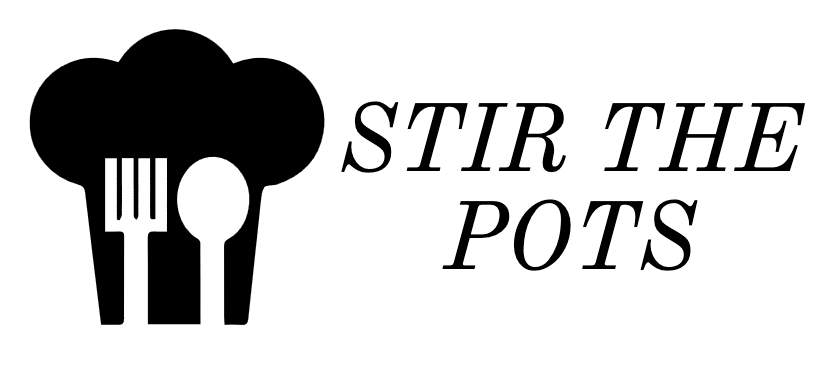
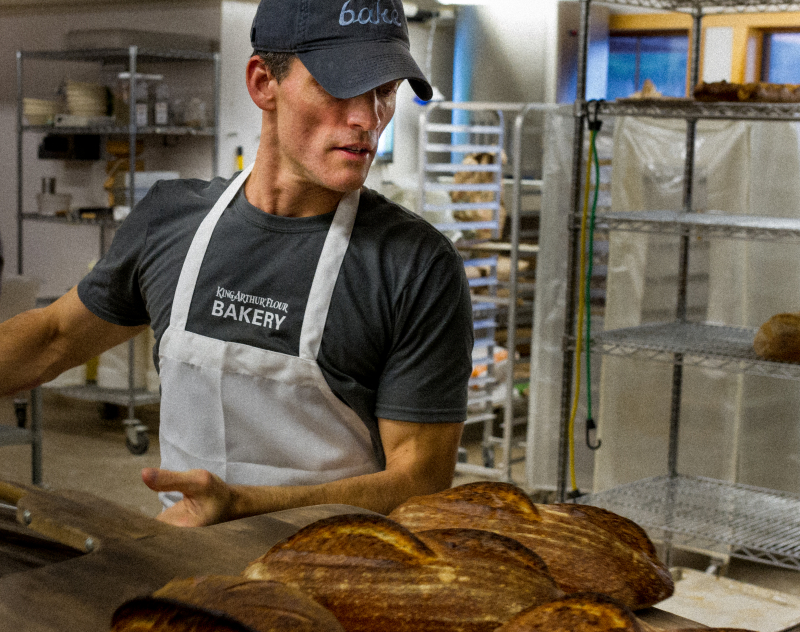
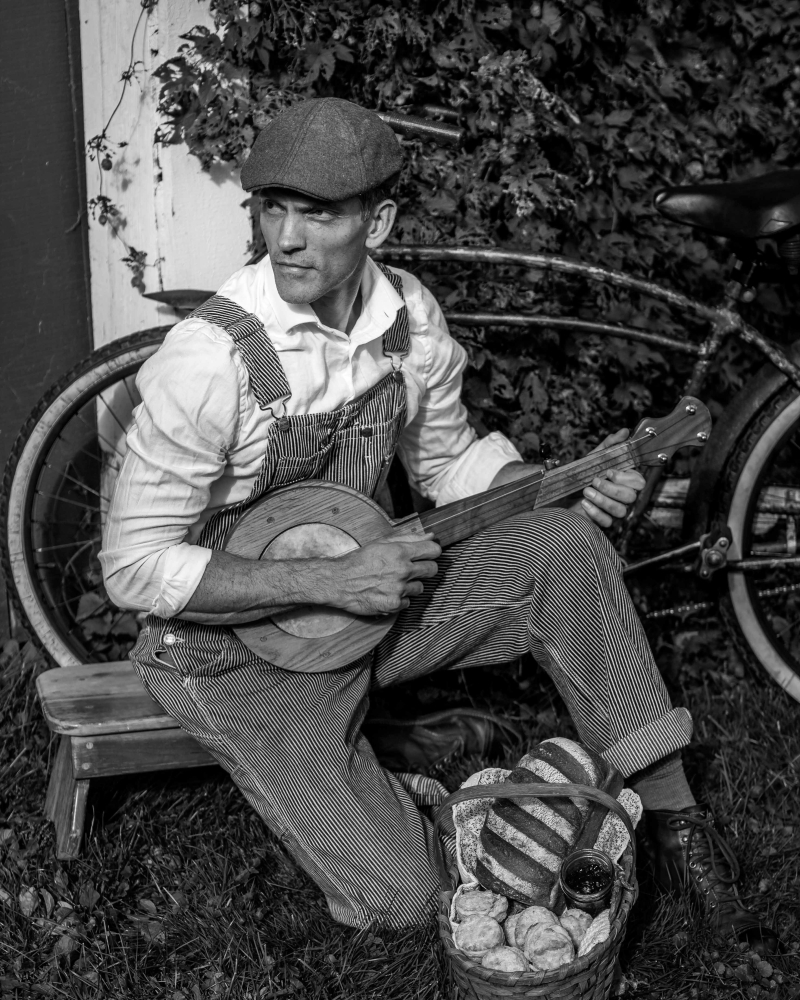
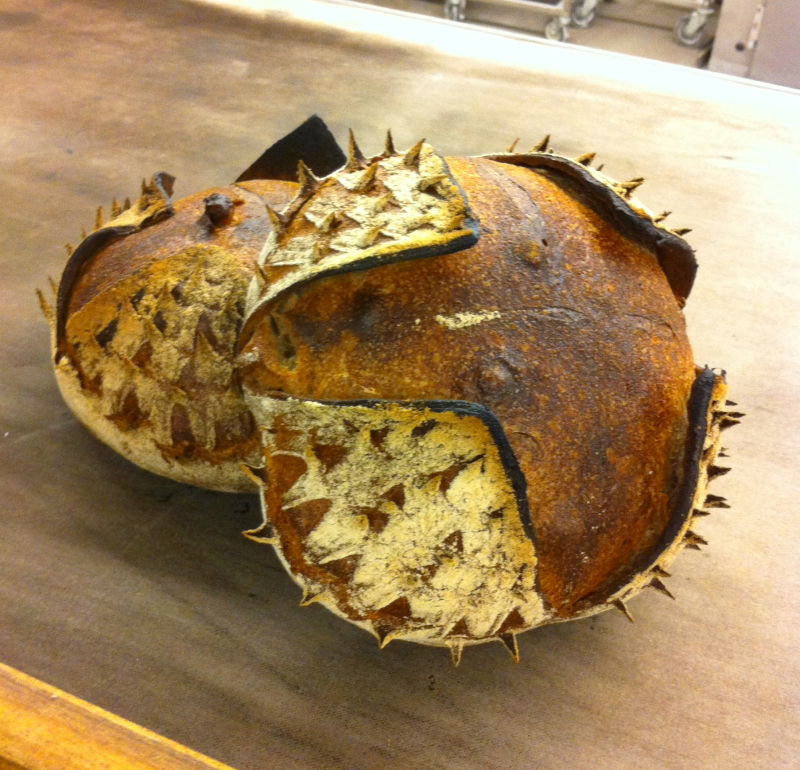
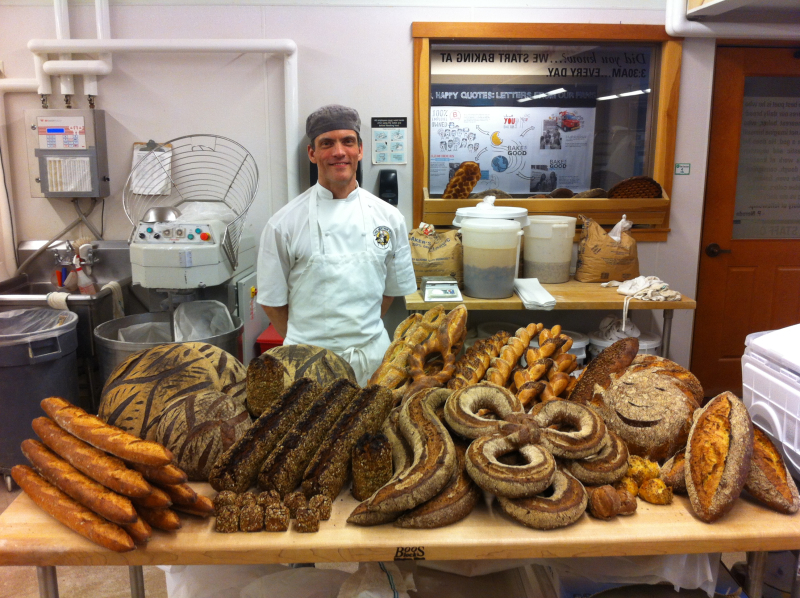
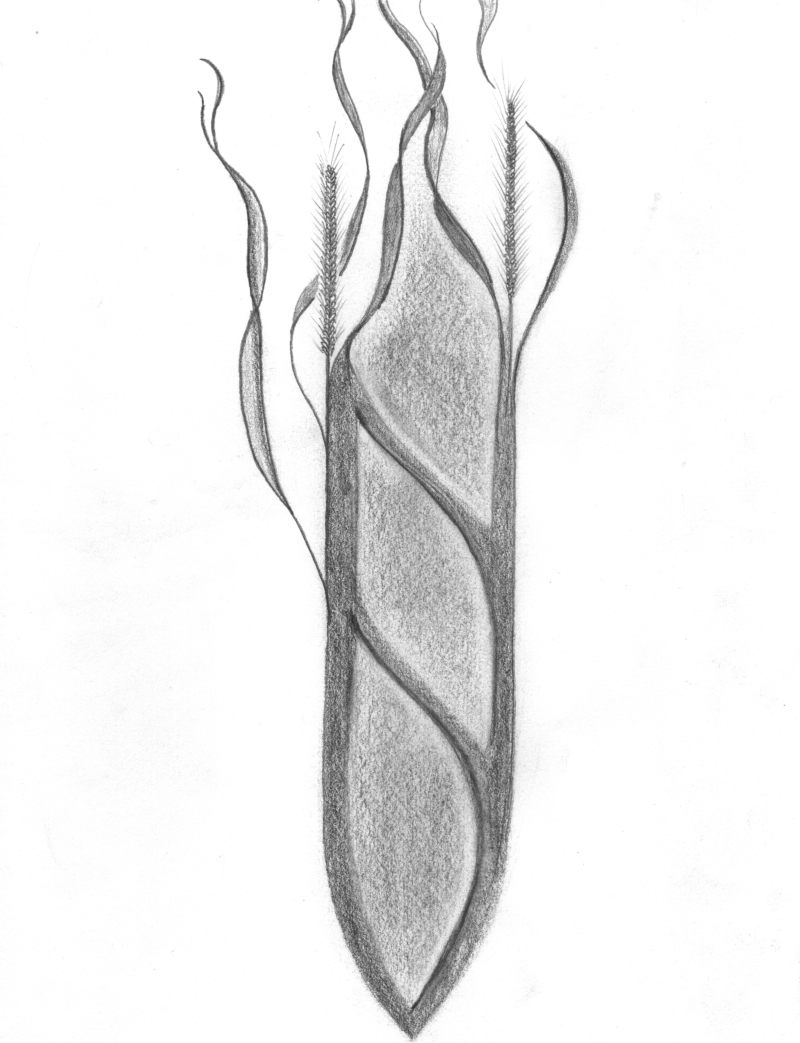
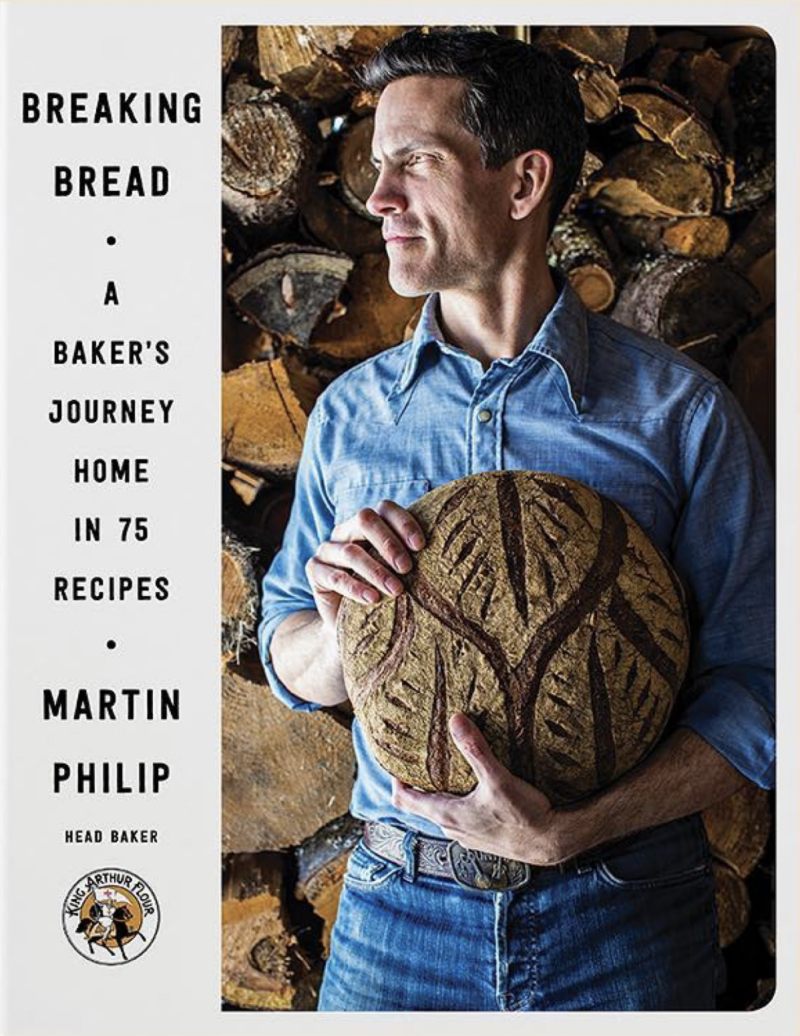
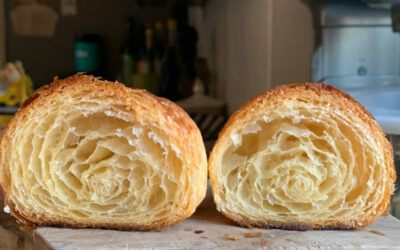
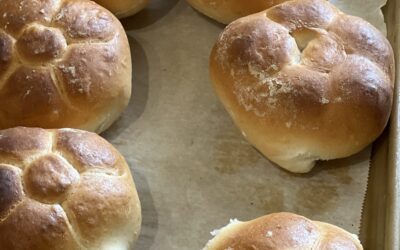

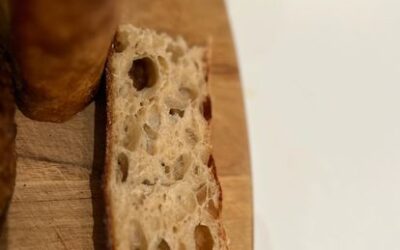
0 Comments